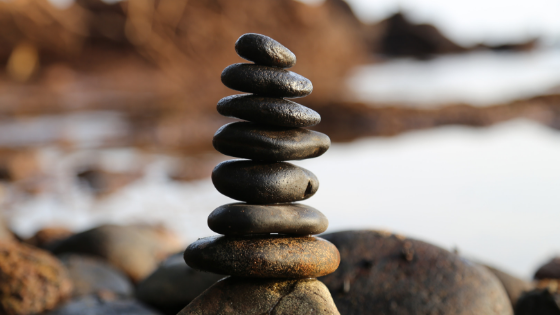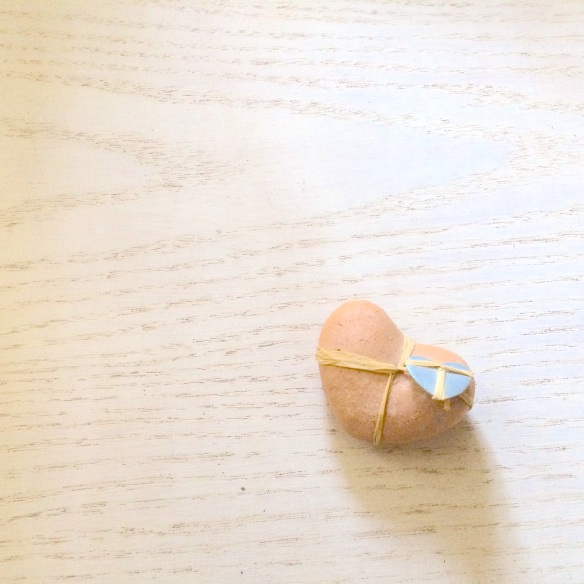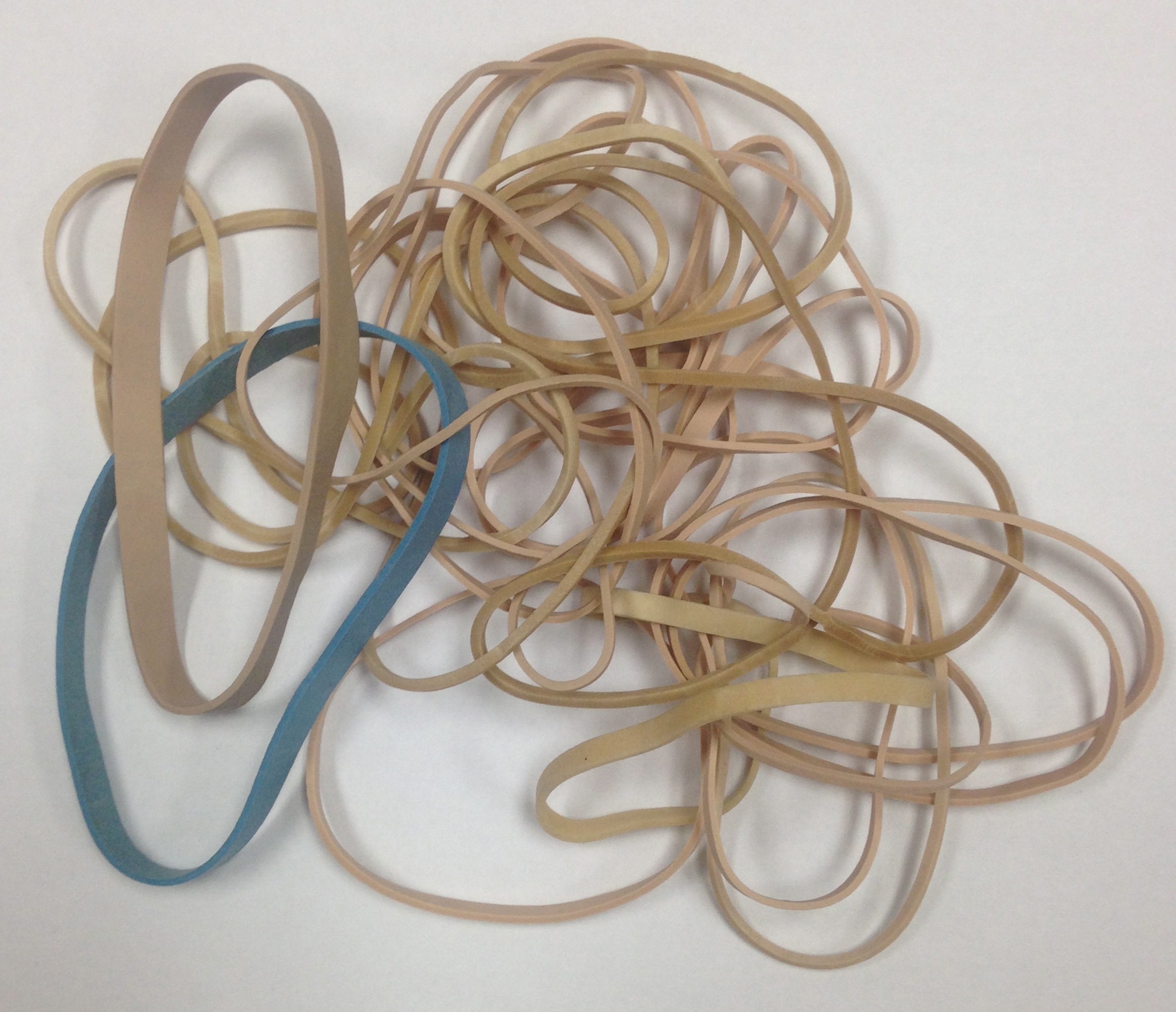 If you’ve stumbled on this post because you’re feeling depressed and/or suicidal, please know that you’re not alone in feeling this way. It may be hard to wrap your head around this when you feel lonely and isolated, but every day there are millions of people who struggle with similar challenges as you, including myself. However, this story is only reflective of my own experience. If you are in crisis I urge you to stick with me until the bottom of the page, where I’ve included further resources and information on finding support. Overcoming these thoughts and getting through your day may seem impossible, but I’ve made it through 100% of my days so far. You can too. Help is only a click away.
If you’ve stumbled on this post because you’re feeling depressed and/or suicidal, please know that you’re not alone in feeling this way. It may be hard to wrap your head around this when you feel lonely and isolated, but every day there are millions of people who struggle with similar challenges as you, including myself. However, this story is only reflective of my own experience. If you are in crisis I urge you to stick with me until the bottom of the page, where I’ve included further resources and information on finding support. Overcoming these thoughts and getting through your day may seem impossible, but I’ve made it through 100% of my days so far. You can too. Help is only a click away.
Let’s get one thing straight: depression is not “the blues”. It’s not a contest about the number of sad things going on in your life, and it’s not about an individual’s capability of dealing with life’s ups and downs (although it certainly doesn’t help).
Take me for example- if you knew me in real life you’d know that I sing constantly, I love doing colorful crafts, and when I find something really, really funny I have this loud, braying laugh that the neighbors can hear in the apartment upstairs.
But when I get sad, I get really, really sad. I cry a lot, and often for no good reason. Most days I have to will myself to get out of bed, because even after a full night’s rest I’m sometimes still so tired I swear I can feel it in my bones.
It’s easy to see then why I’m fascinated with productivity and learning more about how other people get through their days. I’m amazed at all of the things that people can achieve when sometimes even taking a shower feels like a battle to me.
It’s not easy for me to talk about this because I’m a perfectionist and I like to get things done. In some ways I think the practice of keeping busy has saved myself from some of my darkest moments. On the other hand, the insane pressure I have put on myself has not always helped with my productivity, or my self-esteem either.
The key is finding a balance.
Slowly I’ve started to learn that part of finding that balance does involve talking about it, about recognizing what brings us down and buoys us back up again. I’m not suggesting a total psychoanalytic breakthrough to help your productivity. But the more you understand yourself and your moods, the better equipped you are at coping.
Because the sucky thing is this: life goes on. You’ve got a job, kids, chores, and other responsibilities that can’t be ignored. But how do you do this when you feel like there’s a giant weight dragging around behind you?
Building a support system that combines non-judgmental mentors, colleagues, friends, family, community members, spiritual leaders and healthcare professionals is very important because it’s so much harder to go it alone, and these people can provide you with an objective perspective when your darker thoughts start getting the better of you. They also may be able to offer you advice on how to spot emotional triggers and develop healthy coping mechanisms. You may choose to have some of these people act as advocates when you are incapable of making rational decisions for yourself. Please don’t shut these people out. They are among the people that love you the most and will hurt the most if they lose you.
Make your coping mechanisms your secret arsenal by keeping running a list, and maybe sharing it with a trusted friend. Some of mine include taking my dog for a walk, having a hot shower and blasting music on my headphones. And baking. Have I ever mentioned baking to you before?
Build coping mechanisms into your routine can be as simple as storing a stress ball in your desk at work, or choosing your outfit the night before to avoid morning freak-outs.
Even paying attention to your emotional triggers and energy levels can help you structure your routine to minimize panic attacks or major mood swings. This could look like opting for a later shift at work if you struggle with getting up in the morning, or putting aside some downtime for yourself after a stressful family event.
If my mood is good and my energy is high I try to make the most of it, and get as much done as I can to help my future self focus on getting through the rough times. Sometimes this involves a little strategic planning on my part- I often don’t schedule anything after events I consider stressful, for example, and I never, ever try to make my day too full.
If you’re equipped with a little more knowledge about what you’re dealing with, and you have support and resources at your fingertips, the better you’ll become at managing your symptoms, and coping through your darker days.
 Thanks for sticking with me until the end of this post. I want you to know if you ever need anyone to lend you an ear, I’m here for (anonymously) at keepingbusyb@gmail.com. Please do email me if you have any solutions to share that have worked for you, or comment below for other readers who might be going through something similar. We’re in all this together.
Thanks for sticking with me until the end of this post. I want you to know if you ever need anyone to lend you an ear, I’m here for (anonymously) at keepingbusyb@gmail.com. Please do email me if you have any solutions to share that have worked for you, or comment below for other readers who might be going through something similar. We’re in all this together.
Here’s that list of resources that I promised you. There is help out there if you make the decision you need it. If you have any resources to add to my list, please let me know and I’ll try to include them in an updated post.
If you’re a Canadian (like me), The Canadian Association for Suicide Prevention is a great resource for those experiencing suicidal thoughts and loss related to suicide. It also features a crisis center search function if you live within Canada. Similarly, the Canadian Mental Health Association provides information on suicide prevention and where to get help.
If you’re in the United States, SAVE (Suicide Awareness Voices of Education) provides resources for those who are suicidal, suicide survivor and for the friends and families of the loved ones affected. They also offer a tip sheet for those concerned about a friend or family member in crisis. The American Foundation for Suicide Prevention offers information and research on suicide, and where to get help.
For those who live outside North America, SAVE also provides a list of international resources and the International Association for Suicide Prevention (an NGO associated with the World Health Organization) has information on where to find help anywhere in the world. Suicide Hotlines also offers a comprehensive list of how to find help internationally.
For those of you who are looking for help online, here are some places to start:
- Metanoia has a great message to read when you’re in a dark place, information on where to get help and advice on choosing what kind of help is right for you.
- Canadian-based website Mindcheck offers quizzes designed to gauge your moods and offers helpful tips on developing healthy coping mechanisms and practicing self-care.
- The Bright Side offers positive messages, personal stories and insights as well as resources and information on a variety of mental health issues including depression, anxiety and grief.
- Although it’s designed with Canadians in mind, The Lifeline app is designed as a guide for those in crisis and connects those in need with a hotline in Canada at the touch of a button.
- Claiming to be the world’s first-ever public screening measure with risk and response protocols, the Suicide Prevention App acts like a diagnostic tool and connects users with more information and resources.
- If those weren’t enough resources for you, check out this article I found with 81 different online websites and apps to help people manage symptoms and access resources to help them on their road to recovery.




 Get Organized:
Get Organized:




 Do you have any solutions or advice for students going back to school? Maybe you can offer the perspective of a parent or a teacher. Leave a comment below and share with the class, or email me at keepingbusyb@gmail.com. I may include your tips in a future post!
Do you have any solutions or advice for students going back to school? Maybe you can offer the perspective of a parent or a teacher. Leave a comment below and share with the class, or email me at keepingbusyb@gmail.com. I may include your tips in a future post!
 In case I didn’t stress it enough above, I am not perfect- I’m still learning every day new ways to treat myself better and achieve a happier, healthier lifestyles. What are some of the solutions that have helped you? I’d love if you dropped me a line or commented below and let me know. We can all benefit from each others knowledge!
In case I didn’t stress it enough above, I am not perfect- I’m still learning every day new ways to treat myself better and achieve a happier, healthier lifestyles. What are some of the solutions that have helped you? I’d love if you dropped me a line or commented below and let me know. We can all benefit from each others knowledge! If you’ve stumbled on this post because you’re feeling depressed and/or suicidal, please know that you’re not alone in feeling this way. It may be hard to wrap your head around this when you feel lonely and isolated, but every day there are millions of people who struggle with similar challenges as you, including myself. However, this story is only reflective of my own experience. If you are in crisis I urge you to stick with me until the bottom of the page, where I’ve included further resources and information on finding support. Overcoming these thoughts and getting through your day may seem impossible, but I’ve made it through 100% of my days so far. You can too. Help is only a click away.
If you’ve stumbled on this post because you’re feeling depressed and/or suicidal, please know that you’re not alone in feeling this way. It may be hard to wrap your head around this when you feel lonely and isolated, but every day there are millions of people who struggle with similar challenges as you, including myself. However, this story is only reflective of my own experience. If you are in crisis I urge you to stick with me until the bottom of the page, where I’ve included further resources and information on finding support. Overcoming these thoughts and getting through your day may seem impossible, but I’ve made it through 100% of my days so far. You can too. Help is only a click away. Once in awhile, you will find yourself in a tangle.
Once in awhile, you will find yourself in a tangle.